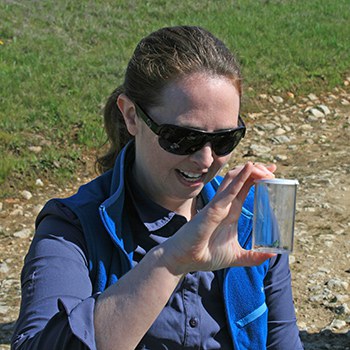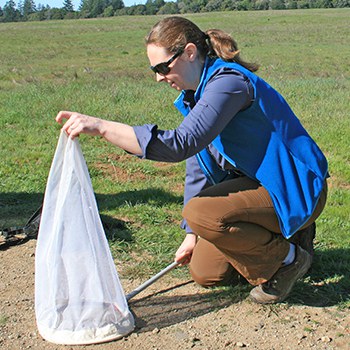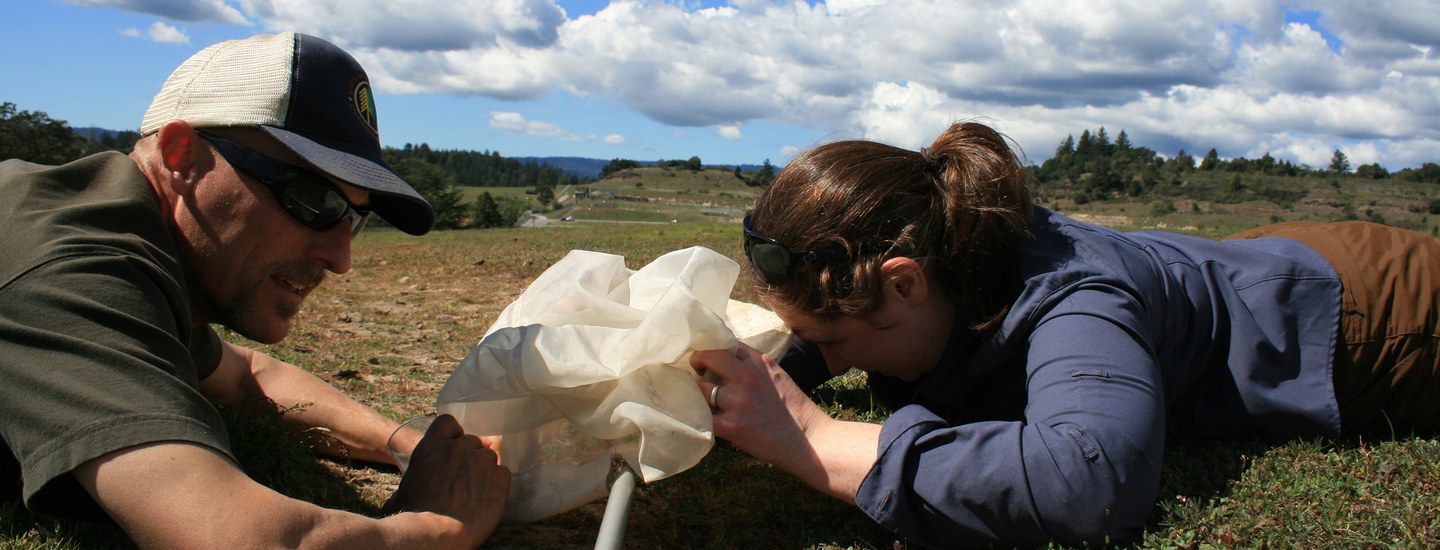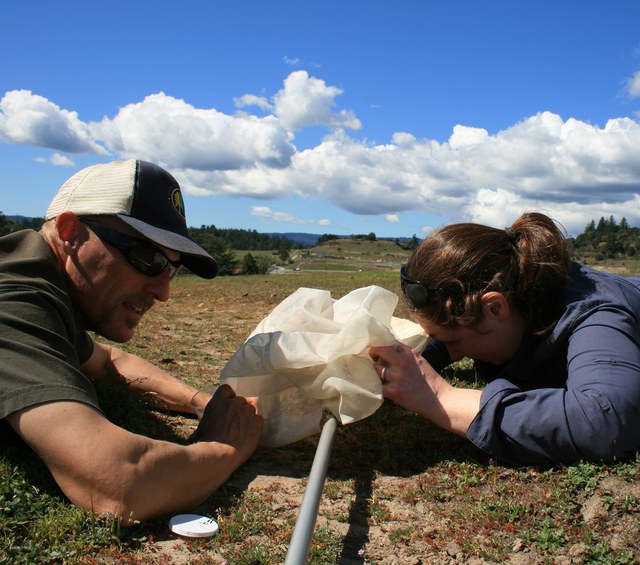In honor of the International Day of Women and Girls in Science on February 11th, I chatted with our February Nature Night presenter, Dr. Tara Cornelisse, on how she got involved in science as a child and what led her to a science career.
This interview has been edited for length and clarity.
How did you initially get interested and involved in the science realm?
I have always been very curious about and felt a connection to the natural world. I loved spending time playing outdoors, gathering leaves, or observing centipedes or beetles under logs, or ladybugs eating aphids. On top of this, I loved biology as a subject in grade school, including cell biology, physiology and the idea of research. Unfortunately, ecology was taught as a two-week unit in general biology class, so I did not get much exposure to it beyond my own meanderings in the woods. I come from a working-class family in western Michigan and so being interested and good at biology equated to becoming a medical doctor, so I pursued a couple of opportunities to learn about the medical profession. I thought maybe I could do laboratory medical science, such as pathology, but upon taking ecology courses in college, I found my niche.
What drew you to studying insects?
My childhood vacations consisted of camping at state parks along Lake Michigan’s shorelines, where there were miles of dunes to explore. I spent a lot of time in the sand dunes and surrounding vegetation collecting ladybugs and observing monarch butterflies and long-horn beetles. In college my affinity towards insects and understanding of their importance to the natural world turned into a more scholarly interest. Then, I was able to study ecology abroad in Ecuador and spend a month in the Amazon rainforest where I experienced insects in their true glory. I observed near foot-long stick insects, glass wing butterflies, hordes of army ants, and all sorts of adorable weevils. Not only was the sheer species diversity incredible, but the many forms and functions of tropical insects were breathtaking to me. I was hooked. When I returned to Boston University, I started working in the only insect lab at the time. That was the start of my professional career in entomology, and while I would continue to conservation biology, I have always kept insects as my focus.
This is a tough question! However, in general, beetles are my favorite group of insects for sure. Within the beetles, I am partial to tiger beetles and dung beetles. I started out studying tiger beetles for my graduate degrees and quickly learned just how cool they can be. I focused on tiger beetles because they tend to be fairly rare wherever they occur. They are visual hunters, using their large eyes and long legs to find and chase their prey over open ground. They are also really beautiful—often metallic green or brown with rainbow undertones. I also love dung beetles. Dung beetles are beautiful, often shiny green or bluish, but they also play an important role as nutrient recyclers, having evolved a variety of behaviors to move and utilize dung resources. They are endlessly fascinating—and quite adorable.
Why is insect conservation important to you?
My understanding of the importance of insects within the natural world has only deepened since those first years in college: I call them mini-superheroes. Insects provide ecosystem services valued tens of billions of dollars annually, including nutrient cycling, soil aeration, recycling of dung and dead organisms, pollination, and supporting birds, mammals, amphibians, reptiles, and fish as food—the list goes on! Also, from an evolutionary perspective, they are just fascinating animals with so many unique adaptations. They deserve to be conserved in their own right; in other words, they have intrinsic value. I also think they are great ambassadors to connect people to nature, just as I experienced as a child in the sand dunes. Insects can be found pretty much everywhere and be used as an educational tool to teach kids—and adults—about ecosystem functions, evolution, conservation biology, ecology, etc. Take fireflies or monarch butterflies, for example. Many people in the United States are able to view and learn about insects that produce light or insects that can fly thousands of miles to roost for the winter. I feel privileged to be able to share what I know about the importance and unique abilities of insects as well as work on their conservation every day.
Take the time to focus on yourself and what brings you joy and makes you feel motivated. Also, be patient with yourself and do not think that you will figure out exactly what you want to do or find your “dream job” right away. I do not believe “dream jobs” exist, but rather your career is what you make of it, and that can change throughout your lifetime as the world changes or as you find new passions and gain new knowledge. I dabbled in a lot of different career trajectories and took time to think about what I liked about each one—and what I did not. I found figuring out what you dislike or what does not bring you happiness and motivation to work is also important. For me, my career trajectory has been less like a one-way street and more like a branching tree, and sometimes I need to get back to the trunk and explore another branch.
Is there anything else you'd like to share?
You do not need to have a graduate degree or even formal education to advance insect conservation. If you have a passion or just an interest in insects or conservation, I encourage you to learn more by reading as well as getting involved with your local land management agency, such as a land trust or local parks association, to volunteer to survey species or pull invasive plants or plant pollinator gardens. Incorporate your interest and newfound knowledge into your conversations with neighbors, family, and friends, and into your own home—perhaps by forgoing pesticide use or turning off your unneeded lights at night. Those smaller efforts add up and matter immensely for insect conservation.
Thank you, Tara! We're looking forward to your upcoming Nature Night presentation!
Learn more:
- Register for Tara's presentation: The Importance of Insects
- What Makes an Insect an Insect


